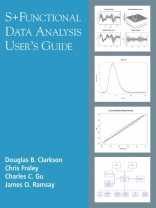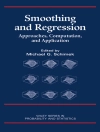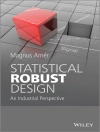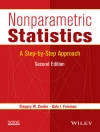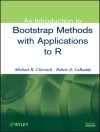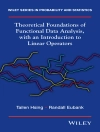S+Functional Data Analysis is the first commercial object oriented package for exploring, modeling, and analyzing functional data. Functional data analysis (FDA) handles longitudinal data and treats each observation as a function of time (or other variable). The functions are related. The goal is to analyze a sample of functions instead of a sample of related points.
FDA differs from traditional data analytic techniques in a number of ways. Functions can be evaluated at any point in their domain. Derivatives and integrals, which may provide better information (e.g. graphical) than the original data, are easily computed and used in multivariate and other functional analytic methods.
The analyst using S+FDA can handle irregularly spaced data or data with missing values. For large amounts of data, working with a functional representation can save storage. Moreover, S+FDA provides a variety of analytic techniques for functional data including linear models, generalized linear models, principal components, canonical correlation, principal differential analysis, and clustering.
This book can be considered a companion to two other highly acclaimed books involving James Ramsay and Bernard Silverman: Functional Data Analysis, Second Edition (2005) and Applied Functional Data Analysis (2002). This user’s manual also provides the documentation for the S+FDA library for SPlus.
From the reviews:
‘The book offers an overview of the basics of functional data approaches as well as a weath of information, sample code, and examples about each of these methods in a clear well-presented manner. The book provides a well-written discussion of how and when to use the functions, and it will be a useful and convenient reference for those getting started with functional analyses.’ The American Statistician, May 2006, Vol. 60, No. 2
Tabella dei contenuti
Basis Objects and Operations.- Functional Data Objects and Operations.- Linear Differential Operators and Smoothing.- Functional Registration.- Functional Linear Models.- Functional Generalized Linear Models.- Functional Principal Components.- Canonical Correlation.- Functional Cluster Analysis.- Principal Differential Analysis.
